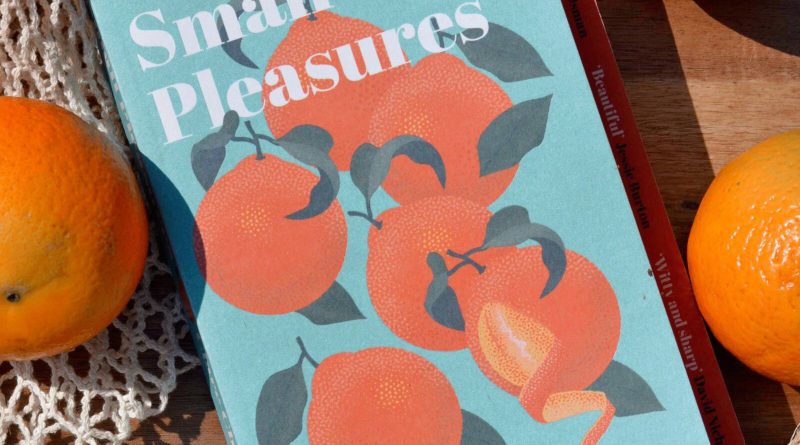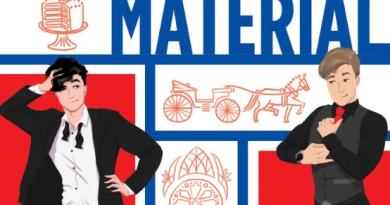Small pleasure
Small pleasure is one of the book we voted to read for the next meetings (April or May?). What do you think about Small pleasure? Please leave your comment below or in our community.
Synopsys
Small Pleasure is set in 1957 in the southeast suburbs of London. We follow Jean Swinney a nearly forty-year-old journalist who is contacted by a young Swiss woman, Gretchen Tilbury, claiming that her daughter is the result of a virgin birth. The more that Jean investigates this claim, the more her life becomes strangely (and not unpleasantly) intertwined with the Tilbury’s. But they are the subject of the story Jean is researching, a story that increasingly seems to be causing dark ripples across all their lives. And yet Jean cannot bring herself to discard the chance of finally having a taste of happiness. But there will be a price to pay, and it will be unbearable.
Small Pleasure is Chambers first piece of fiction to be published in ten years. It was also longlisted for the ‘Women’s Prize for Fiction’ this year. It is inspired by two real events (as explained in her afterword.) The first being a 1955 newspaper competition to find a virgin mother, which found one woman who passed all the medical tests to support a virgin birth except for the final skin graft. The second is the Lewisham train crash of 1957 in which 90 people died. The novel opens with that front-page newspaper article about the Lewisham train crash, something that confused me as I began reading the novel but began to make sense around halfway through (I will expand on this later.)
Review
I have mixed views on this book. I didn’t particularly like it, but I also didn’t particularly dislike it either. Chambers has an excellent writing style and voice, it was easy to read and follow along with the plot, but I found the plot itself a bit… meh.
So, I originally picked up this book because I was drawn to the beautiful cover which is off painted tangerines. Then, I read the blurb and was intrigued by this idea of (dis)proving a virgin birth.
I suppose I’ll start with the things I didn’t like about this novel. Firstly, I think the characters are a tad bland. Yes, they are all clearly different but none of them seemed to jump off of the page. Perhaps this is due to the fact that they are all meant to be ‘normal’ people, not very exciting, but when you compare these normal people to Connell and Marianne in ‘Normal People,’ two normal characters who jumped off of the page, I was disappointed.
Revelation
Secondly, the revelation that Margret was a product of unknown rape was simultaneously unsurprising but also just seemed like a cop-out. It’s clear from the start that Margret obviously wasn’t a virgin birth, it’s just impossible, but there seems to be no clues or build-up that she was conceived via rape until the last few chapters of the book. Having this suddenly being sprung on you with not many clues spread throughout the entire novel is what made it seem like a cop-out to me. Although this revelation was sprung onto us, when I read the revelation I was not surprised, it’s as if I almost suspected it deep down; I was neither shocked, disappointed or felt relieved to have an answer. I felt nothing, which is not good when you’re reading a book.

Thinking…
Lastly, (and a lot of other reviewers seems to agree with me on this point,) having the novel end with Howard dying in the Lewisham train crash was disappointing. Looking back, it was clear that this was how the novel was going to end, I mean, Chambers started the novel with the newspaper article about it and never mentioned it again. You begin to realise how the novel is going to end around ¾ of the way through, so you’re sort of prepared but it is still disappointing.
I had a feeling that I was meant to feel sad; sad for Jean missing out on her chance of happiness, sad for Margret losing a father, sad for Howard, but I didn’t. It just didn’t seem satisfying enough. A cliché as it may have been, Chambers should’ve had Howard miss that train by a few minutes like she was hinting he was going to. We as the reader would know what tragedy he had just merely escaped and it would’ve seemed so much more satisfying.
Homosexuality
Something that I particularly enjoyed when reading this novel was the revelation that Gretchen is a lesbian. It wasn’t so much that Gretchen was a lesbian that I enjoyed, but rather Jean and Howard’s reaction to it.
Remembering this novel is set in the 1950s, and both Jean and Howard are around the forty-age mark, they would’ve been raised with homophobic views (as Jean confirms in regards to her mother’s views on homosexuality.)
However, Jean and Howard are not disgusted by Gretchen, they are fine with it, if anything they seem relieved by it; Jean because it means Gretchen left Howard so she no longer has to feel guilty about having feelings for him, and Howard because it explains why Gretchen shunned him of a sexual love life for seven years. The revelation of Gretchen being a lesbian was expertly done also, Chambers laid enough clues throughout for you to not pick up on it whilst reading the book, but having that ‘oooh, of course, she is’ moment when it is revealed she is.
Overall, Claire Chambers ‘Small Pleasure’s was… okay. As I said, I enjoyed the writing style and overall voice throughout the novel, I just wasn’t captivated by the plot like I thought I would be. Like all reviews, this is my own opinion, perhaps this could become your new favourite book. If you do read this, please let me know your thoughts, perhaps you have/will pick up on things that I never did.




